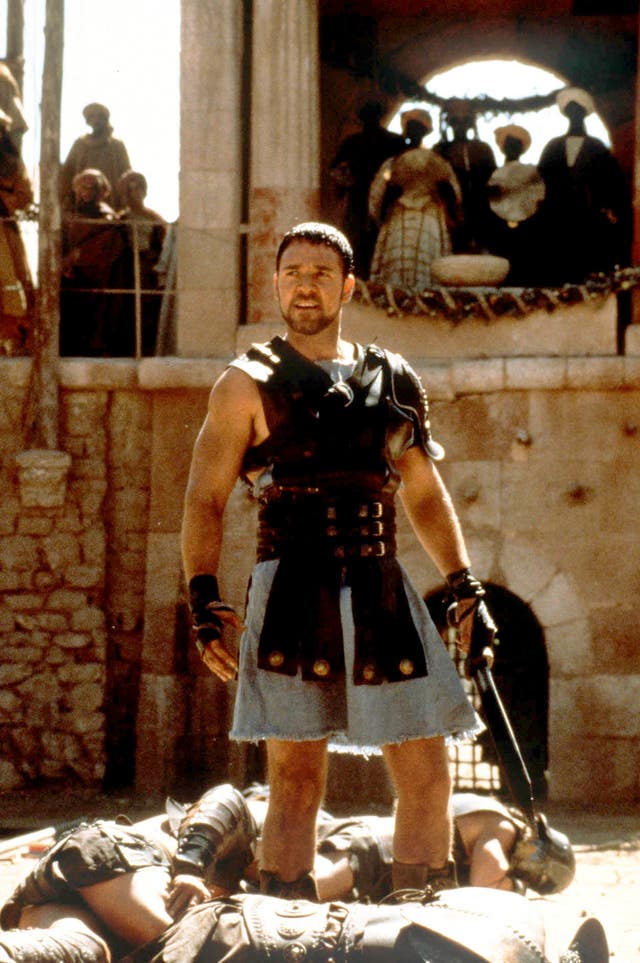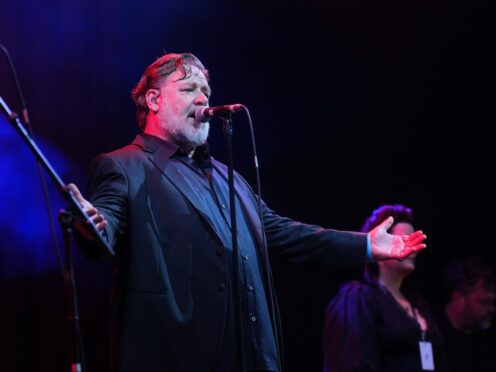Gladiator star Russell Crowe has criticised the film’s executives for their lack of research when writing the original script.
Released in 2000, Gladiator was the film which shot Crowe to fame and saw him win an Oscar for best actor for his performance as Roman general Maximus Decimus Meridius.
The 60-year-old actor claimed that some executives on the film did not know who emperor Marcus Aurelius was and said he had to edit the “s***” script with director Sir Ridley Scott.

He told GQ magazine: “You’re reading it and going, oh, f*** off.
“My agent was like, ‘well, come on, convince yourself there’s something positive about it, because (Sir Ridley) wants to meet you’.
“It really wasn’t a script. It was just an idea. But not even a good idea.”
The actor praised 86-year-old Sir Ridley for being “monumental as an artistic brain”, and added he had a “great relationship” with the director.
Speaking about meeting him for the first time, Crowe added: “At a certain point, everybody else left the room, and I said, the script’s s***.”
The actor explained that Sir Ridley had told him he felt it could be improved due to the 100 million dollars in resources they had been given.
Crowe continued: “(But it) was one of my first experiences of the expectation of the studio, and having studio people involved in the process of developing what you’re doing. And they were f****** not very smart.”
The New Zealander said that when executives drew a blank on who Aurelius was, he went to the local bookshop and bought six copies of Meditations, and said “f****** read this”.
He added: “You might be picking up, I’m rather blunt. And when I’m confronted with stupidity like that, I don’t deal with it very well.
“You’re f****** telling me you’re going to spend 100 million dollars on a subject you don’t know anything about?”
Crowe said he would meet with Sir Ridley after hours to work on the script, and added that sometimes the pair would be there until 4am in the morning.
The actor said: “We really enjoyed each other’s company, and that ideas are bouncing around, we really started to give it some morality, and some fibre, and some strength.”
His comments came just days after he performed at Glastonbury Festival as Russell Crowe’s Indoor Garden Party.
